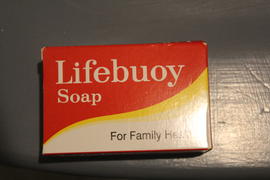In the interview, Ettore Raffi spoke about his experiences of life at sea and his voyages to Tunisia, Panama, Mississippi and the Mediterranean. He travelled to Malta three times during different periods. He shared memories regarding trade between Lampedusan fishermen and sailors and the Maltese. The Lampedusans used to consider Malta as a rich island because of the availability of tobacco, sugar, chocolate and bars of soap. He recalled relations between Maltese, Italian and British sailors, as well as the nightlife in Valletta, particularly related to Strait Street, and Maltese women. Ettore Raffi gave us his opinion about Maltese culture, the period between 1964-1979, the Dom Mintoff government and the changes after Independence.
Lampedusa
6 Archival description results for Lampedusa
In the interview Ettore Raffi shared memories regarding trade between Lampedusan fishermen, sailors and the Maltese. The Lampedusans used to consider Malta as a rich island because of the availability of tobacco, sugar, chocolate and bars of soap. He recalled relations between Maltese, Italian and British sailors, as well as the nightlife in Valletta, particularly related to Strait Street, and Maltese women. Ettore Raffi gave us his opinion about Maltese culture, the period between 1964-1979, the Dom Mintoff government and the changes after Independence.
Salvatore Davì focused on his life experiences in both Lampedusa and in Malta. He lived in Lampedusa until 1968. That year he met his future Maltese wife and subsequently relocated to Malta in 1970. During the interview, he spoke about the exchange of products between the two Islands. He also described how he adapted to life in Malta and how he managed to integrate with the Maltese.
This brand of soap generated many memories for the fishermen and the women of Lampedusa. This used to be bought in Malta during their travels and taken back home to their families.
During the interview, Salvatore Davì focused on his life experiences both in Lampedusa and in Malta. He lived in Lampedusa until 1968. That year he met his future Maltese wife and subsequently relocated to Malta in 1970. During the interview he spoke about the exchange of products between the two Islands. He also described how he adapted to life in Malta and how he managed to integrate with the Maltese. He spoke about Salvatore Gervaso and the Stella di Mare company, two names which are important for the theme 'The Malta-Lampedusa Connection.' His memories about the British, Valletta, Marsaxlokk and the Dom Mintoff administration were positive. However, contraband was a problem.

